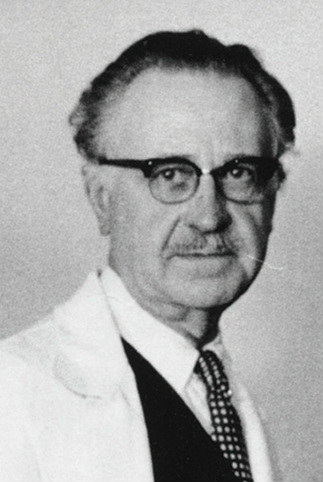
Henrik Sjögren
Henrik Sjögren: Pioneering the Understanding of Sjögren’s Syndrome
Henrik Sjögren was a Swedish ophthalmologist who made significant contributions to the field of rheumatology. He is best known for his work in identifying and describing a condition now known as Sjögren’s Syndrome, an autoimmune disorder that affects primarily the exocrine glands. This article explores the life and contributions of Henrik Sjögren and the legacy he left behind.
Early Life and Education
Henrik Samuel Sjögren was born on July 23, 1899, in Copenhagen, Denmark. He grew up in a family that valued education and had a keen interest in the sciences. This early exposure to intellectual pursuits sparked his curiosity and set the stage for his future accomplishments.
Sjögren attended the Karolinska Institute in Stockholm, Sweden, where he pursued a degree in medicine. It was during his time at the institute that he began to show a particular interest in the fields of ophthalmology and rheumatology.
Discovery of Sjögren’s Syndrome
In 1933, while working at the Department of Rheumatology at Huddinge Hospital, Sjögren encountered a series of patients exhibiting a distinct set of symptoms. These individuals suffered from dry eyes and mouth, as well as joint pain and fatigue. Intrigued by this pattern, Sjögren embarked on a comprehensive study of these cases.
Through meticulous research and clinical observation, Sjögren identified a previously unrecognized autoimmune disorder characterized by the infiltration of lymphocytes into exocrine glands. He published his findings in a groundbreaking paper in 1933, coining the term “keratoconjunctivitis sicca” to describe the dry eye component of the syndrome.
Further Research and Recognition
Henrik Sjögren’s work on this syndrome opened up a new frontier in the understanding of autoimmune diseases. His research laid the foundation for subsequent studies, enabling scientists and clinicians to diagnose and treat Sjögren’s Syndrome with greater precision.
Sjögren continued to make significant contributions to the field of rheumatology throughout his career. He was known for his thorough and compassionate approach to patient care, earning him the respect and admiration of colleagues and patients alike.
Legacy
Henrik Sjögren’s legacy endures in the medical community. His pioneering work has not only led to a greater understanding of Sjögren’s Syndrome but has also paved the way for research into other autoimmune conditions. The term “Sjögren’s Syndrome” itself is a testament to his enduring impact on the field.
Today, Sjögren’s Syndrome is recognized as a complex and multifaceted autoimmune disorder that affects millions of people worldwide. Ongoing research and advancements in treatment owe much to Sjögren’s initial observations and investigations.
Henrik Sjögren’s contributions to the field of rheumatology have left an indelible mark on the medical world. His dedication to understanding and treating autoimmune conditions, particularly Sjögren’s Syndrome, has improved the lives of countless individuals. Through his pioneering work, Sjögren has earned a place among the great medical minds of the 20th century, and his legacy continues to inspire and inform the work of researchers and clinicians around the globe.
